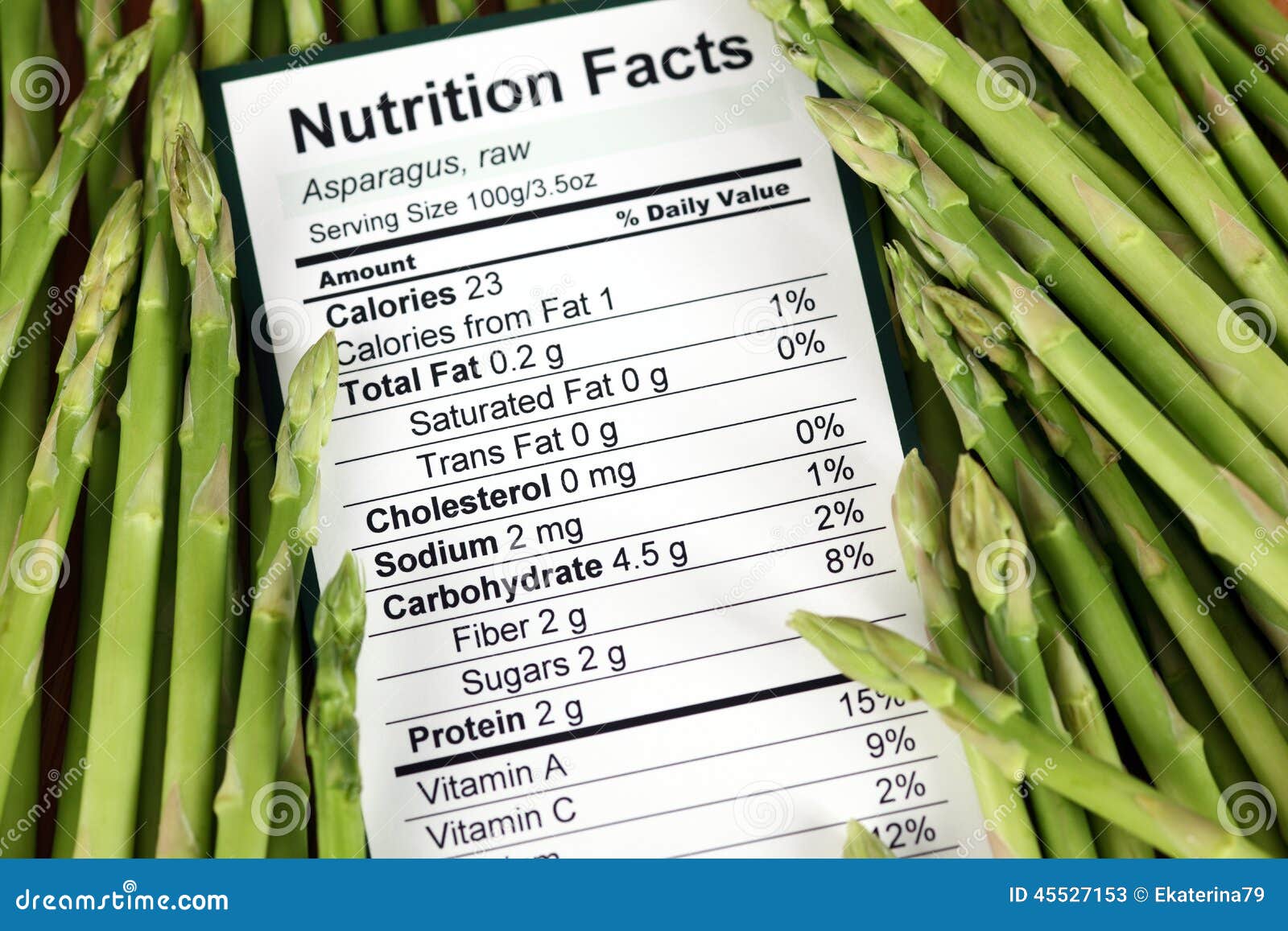Asparagus: A Nutrient-Rich Vegetable For A Healthy Diet

Table of Contents
Nutritional Powerhouse: Vitamins and Minerals in Asparagus
Asparagus is more than just a tasty side dish; it's a nutritional powerhouse brimming with essential vitamins and minerals crucial for optimal health.
Vitamin K and Bone Health
Asparagus is an excellent source of Vitamin K, a vital nutrient playing a crucial role in bone health, blood clotting, and reducing the risk of osteoporosis.
- A single cup of cooked asparagus provides approximately 100% of the recommended daily intake of Vitamin K.
- This surpasses many other vegetables, making asparagus a standout choice for strengthening bones and preventing fractures, particularly beneficial for the elderly.
- Vitamin K's role in blood clotting is essential for preventing excessive bleeding.
Folate for Cell Growth and Development
Asparagus is also rich in folate, a B vitamin crucial for cell growth and development. Folate is especially important for:
- Pregnant women: Adequate folate intake during pregnancy is vital for preventing neural tube defects in developing fetuses.
- DNA synthesis and cell division: Folate plays a crucial role in these processes, essential for healthy cell function and growth throughout the body.
- A serving of asparagus provides a significant contribution to your recommended daily folate intake.
Other Essential Vitamins and Minerals
Beyond Vitamin K and folate, asparagus offers a wealth of other essential nutrients:
- Vitamin A: Supports vision, immune function, and cell growth.
- Vitamin C: A powerful antioxidant that boosts the immune system and protects against cell damage.
- Vitamin E: Another antioxidant that protects cells from damage caused by free radicals.
- Potassium: Essential for maintaining healthy blood pressure and fluid balance.
- Fiber: Promotes healthy digestion and regularity. A serving of asparagus contributes significantly to your daily fiber needs.
Health Benefits of Asparagus Consumption
The impressive nutrient profile of asparagus translates into numerous health benefits:
Antioxidant Properties and Disease Prevention
Asparagus contains various antioxidants, including glutathione and flavonoids, which combat free radicals. These free radicals can damage cells and contribute to chronic diseases.
- Studies suggest that the antioxidants in asparagus may help reduce the risk of cancer, heart disease, and other chronic illnesses.
- The potent antioxidant properties contribute to overall cellular health and protection.
Improved Digestive Health
The fiber content in asparagus significantly contributes to a healthy digestive system.
- Fiber promotes regular bowel movements, preventing constipation and improving gut health.
- It also helps feed beneficial gut bacteria, further supporting digestive function. This is particularly helpful for those experiencing digestive discomfort.
Blood Pressure Regulation
Asparagus's high potassium content plays a crucial role in blood pressure regulation.
- Potassium helps counterbalance the effects of sodium, reducing strain on blood vessels and promoting healthy blood pressure levels.
- Regular asparagus consumption can contribute to cardiovascular health by supporting healthy blood pressure.
Incorporating Asparagus into Your Diet: Delicious and Versatile Recipes
Adding nutritious asparagus to your diet is easy and enjoyable, thanks to its versatility.
Simple Cooking Methods
Asparagus is remarkably easy to prepare. Enjoy it by:
- Roasting: Toss with olive oil, salt, and pepper, then roast at 400°F (200°C) for 12-15 minutes.
- Grilling: Grill spears until tender-crisp, adding a touch of lemon juice for extra flavor.
- Steaming: Steam until tender, about 5-7 minutes.
- Sautéing: Sauté with garlic and butter for a simple, flavorful side dish.
Creative Recipe Ideas
Beyond simple sides, asparagus stars in many creative dishes:
- Asparagus Soup: Blend roasted asparagus with vegetable broth for a creamy and delicious soup.
- Pasta with Asparagus: Toss cooked asparagus with your favorite pasta, Parmesan cheese, and a light lemon sauce.
- Asparagus Frittata: Create a hearty and protein-packed frittata by combining eggs, cheese, and asparagus.
- Grilled Asparagus with Lemon: Grill asparagus spears and drizzle with fresh lemon juice for a bright and refreshing side dish. Many recipes are readily available online.
Conclusion
Asparagus: a nutrient-rich vegetable that offers a wealth of vitamins, minerals, and antioxidants, contributing to bone health, improved digestion, blood pressure regulation, and disease prevention. Its versatility makes it easy to incorporate into various dishes, from simple side dishes to gourmet creations. Add the delicious and nutritious benefits of asparagus to your meals today! Explore the vast culinary possibilities and experience the incredible health boost this amazing vegetable provides. Find fresh, nutritious asparagus at your local farmer's market or grocery store and start enjoying its many benefits!

Featured Posts
-
 Xrp Gains Momentum Analyzing The Latest Ripple Developments
May 01, 2025
Xrp Gains Momentum Analyzing The Latest Ripple Developments
May 01, 2025 -
 Dragon Den Showdown Businessman Rejects Investors Accepts Risky Offer
May 01, 2025
Dragon Den Showdown Businessman Rejects Investors Accepts Risky Offer
May 01, 2025 -
 Can Trong Khi Dau Tu Gop Von Nhung Rui Ro Tiem An Can Biet
May 01, 2025
Can Trong Khi Dau Tu Gop Von Nhung Rui Ro Tiem An Can Biet
May 01, 2025 -
 Frances Rugby Dominance A Six Nations 2025 Preview
May 01, 2025
Frances Rugby Dominance A Six Nations 2025 Preview
May 01, 2025 -
 Shrimp Ramen Stir Fry Simple Recipe With Big Flavor
May 01, 2025
Shrimp Ramen Stir Fry Simple Recipe With Big Flavor
May 01, 2025
Latest Posts
-
 Sf Actor Workshop Co Founder Priscilla Pointer Dies At 100
May 02, 2025
Sf Actor Workshop Co Founder Priscilla Pointer Dies At 100
May 02, 2025 -
 Remembering Priscilla Pointer A Legacy Of Acting And Mentorship
May 02, 2025
Remembering Priscilla Pointer A Legacy Of Acting And Mentorship
May 02, 2025 -
 Priscilla Pointer 1923 2023 Remembering A Celebrated Actress And Workshop Founder
May 02, 2025
Priscilla Pointer 1923 2023 Remembering A Celebrated Actress And Workshop Founder
May 02, 2025 -
 Priscilla Pointer 1922 2022 Celebrated Actress Passes Away
May 02, 2025
Priscilla Pointer 1922 2022 Celebrated Actress Passes Away
May 02, 2025 -
 Stage And Screen Icon Priscilla Pointer Passes Away
May 02, 2025
Stage And Screen Icon Priscilla Pointer Passes Away
May 02, 2025
